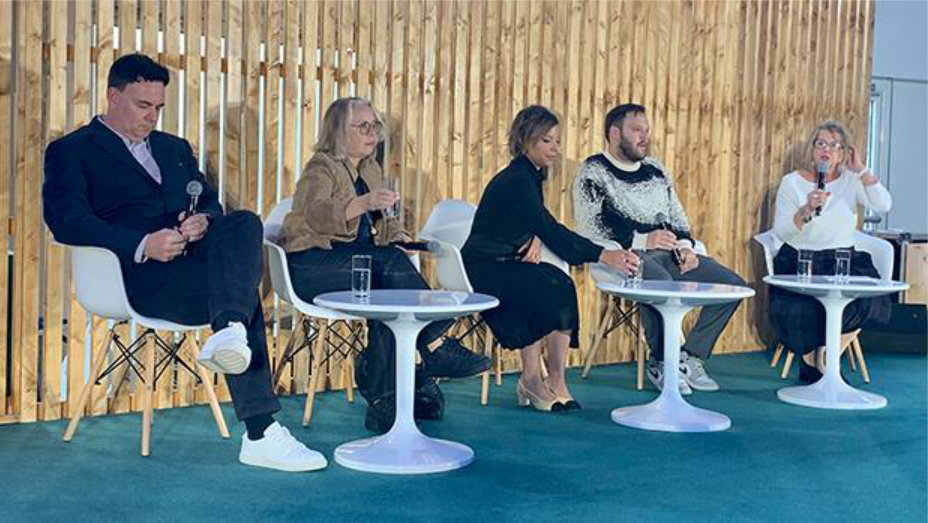Navigating the factual storm

Embattled factual producers at Mipcom this week talked survival strategies and ways out of what is being described as the worst non-Covid-related commissioning crisis for two decades.
Be bold. Be smart. Think outside the box. Stay one step ahead. Twist while others stick. Find opportunities in adversity. These were all phrases heard from the mouths of beleaguered factual producers at Mipcom 2023 in Cannes.
At best they sound like the sort of trite platitudes that perennial Polyannas stick on their fridge doors. At worst, they are nothing less than the false optimism of the desperate.
Spending time at the world’s biggest TV market this week, one thing became abundantly clear: the factual space is in a deep existential funk.It’s a sobering thought that just six months ago, at MipTV, C21 reported the very same ecosystem appeared to be in rude health. Sadly, it seems that was illusory – a dead cat bounce.
At the start of the week, Banijay UK CEO Patrick Holland set the scene. “The headwinds are really substantial,” he told C21. “Some of those mid-range factual pieces, which used to be the bread and butter of so many prodcos, are going. It used to be the case that you could make a nice business out of producing 1×50’ docs and a few series a year, but it’s a really challenged market now.”
Things were no more upbeat at a panel session later in the week called The Future of Factual. Industry veteran Danny Fenton, the CEO of UK-based Zig Zag Production, painted a bleak picture of the worst non-Covid-related unscripted commissioning crisis in two decades.
“I yearn for the days when I used to pitch six ideas to Discovery and four of them would get commissioned,” he told delegates. “The truth is it’s a very tough time in the TV community worldwide.
“After the pandemic there was this amazing U-shape pattern where both the broadcasters and streamers were increasing their commissioning. But unfortunately now both sides of that seesaw are coming down. It’s a lot harder for producers to get commissions and finance.”
Anke Stoll, senior VP of acquisitions and coproductions at Israel’s Keshet International, agreed with Fenton. “This summer in the UK and the US it was really hard for factual producers,” she said. “Nothing was being commissioned. I think there may be more demand for new shows next year. We’re gambling a bit with that, as we saw a similar progression after Covid too.”
Sitting on the same panel, Max Einhorn, senior VP of acquisitions and coproductions at New York-based streamer FilmRise, explained that digital-first platforms continue to divert eyeballs away from linear TV.
“There’s audience fragmentation now,” he said. “They spend their time with new digital brands, such as YouTube or publishers like BuzzFeed.
“These entities have syphoned market share away from traditional film and TV. In the US, many of these digital content creators have their videos watched by bigger audiences than the best nights of network TV.”Monica Redman, exec VP of development at Universal Television Alternative Studio, believes it’s essential that unscripted creatives can pivot quickly to adapt to new content trends, rather than risk becoming extinct by ploughing the same depleted furrow.
“Diversification is the best way to future-proof yourself,” she said. “When I first arrived at the studio we only focused on formats.
“Over the years, we really homed in on growing our development slate, moving into prime and docs. We didn’t know how to do that at the time, we just figured it out because we wanted to make sure we were well positioned as the marketplace shifts.
“I believe the world’s best storytellers are in this room [at the Mipcom factual panel session] and I don’t think we should be restricted by one particular genre.”
Despite the very real anxiety in the sector, all the executives quoted here have offered alternative solutions to help overcome the seemingly insurmountable odds.
As reported by C21, these include seeking investment from the Middle East, courting straight-to- series orders from distribution companies, tapping into branded content funding models, plus harnessing the power of artificial intelligence to reduce operational and production costs.
Fenton is confident factual producers will take stock, adapt, evolve and eventually thrive once again. “One thing our industry is very good at is re-inventing itself,” he said. “TV people find solutions and so I’d advise producers to not be restricted by the current challenging economy.”
Ending on a cautiously upbeat note, the final word goes to Einhorn: “Factual is like matter – it can’t be destroyed, it just takes new forms.”